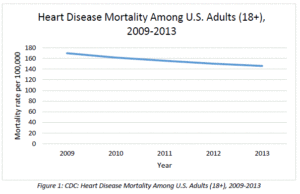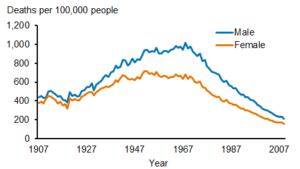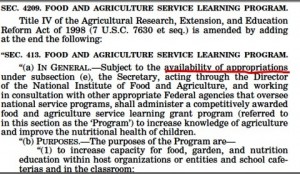Letter to The Nation about Michelle Obama’s “Becoming”
Michelle Obama’s new book, Becoming, may be a blockbuster, but The Nation wishes she were more political. An interview of Nation-contributor Amy Wilentz by Nation-contributing editor Jon Wiener about Becoming induced me to fire off this letter:
The Edible Is Political
As a longtime subscriber to The Nation and the author of Food Politics and other books on this topic, I was dismayed to read the following exchange in Jon Wiener’s interview with Amy Wilentz [“Michelle Obama’s Carefully Scrubbed Memoir,” online Nov. 30]:
JW: I wonder if it’s possible that Michelle Obama actually is not a political person. Maybe the things she cares most about really are childhood obesity and healthy eating. We would like her to be more political, more of a progressive Democrat—but maybe she isn’t.
AW: But remember that, for her, those issues—childhood obesity and the “Let’s Move” idea—are political issues. It’s not like decorating the White House.
Childhood obesity most definitely is a political issue and for everyone, not just Michelle Obama. Childhood obesity is directly linked to the corporatization of America; to discrimination based on race or gender; to income inequalities; to the increasing privatization of what used to be public goods; to depressed wages; to immigration policies; to lack of a decent health-care system; and, not least, to current divisions in Americans’ views of what our society should look like.
If “Let’s Move” seems apolitical in retrospect, it’s because of the intense opposition it faced from those who understood perfectly well that taking on childhood obesity meant, in essence, taking on the entire trillion-dollar-a-year food industry and everything else that backs up our current food system.
I’ve always wondered whether Michelle Obama knew just how political childhood obesity would be when she took it on, or whether she thought it was something that would easily attract widespread bipartisan support. I suspect the latter and am not convinced by assurances that she knew it would be a fight. The White House Task Force Report on Childhood Obesity produced a mixed bag of objectives for “Let’s Move,” out of which she picked two that appeared especially supportable: access to healthy food in low-income communities and healthier school food. But the pushback, especially on school food, was ferocious. That’s why the new school-food rules, compromised and unfunded as they were, seemed like a political triumph.
Marion Nestle
Professor of nutrition, food studies, and public health, emerita, at NYU
New York City
Jon Wiener Replies
Marion Nestle is, of course, right about this. I should have said something like, “Childhood obesity is a political issue, but that’s not the way Michelle Obama presents it in the book.” Sadly, in listing her accomplishments, “Let’s Move” and the White House garden come after commissioning new china for the newly redecorated dining room.
Jon Wiener
los angeles
Jon Wiener, as it turns out, is spot on. I had not read Becoming at the time I wrote the letter but this exchange sent me right to the book. Mrs. Obama focuses on the personal and indeed presents herself as uninvolved in the political. But during the Let’s Move era, she gave a couple of decidedly political speeches about the role of the food industry in childhood obesity (here’s my summary of one of them).
Postscripts
- The Obama’s date at Blue Hill. Indeed, Michelle Obama doesn’t say much in Becoming about Let’s Move. She devotes more pages to her date with the President at Blue Hill, which I found riveting because I witnessed that date. My partner and I were taking Sidney Mintz and his wife to dinner that night and that’s where we had made reservations. The staff seated us directly across from the Obamas but, alas, did not introduce us. Cool New Yorkers as we are, we left them in peace.
- The Nation’s previous comments on Let’s Move: The Nation has long been critical of the way Let’s Move partnered with food companies (I’m quoted in this article).




